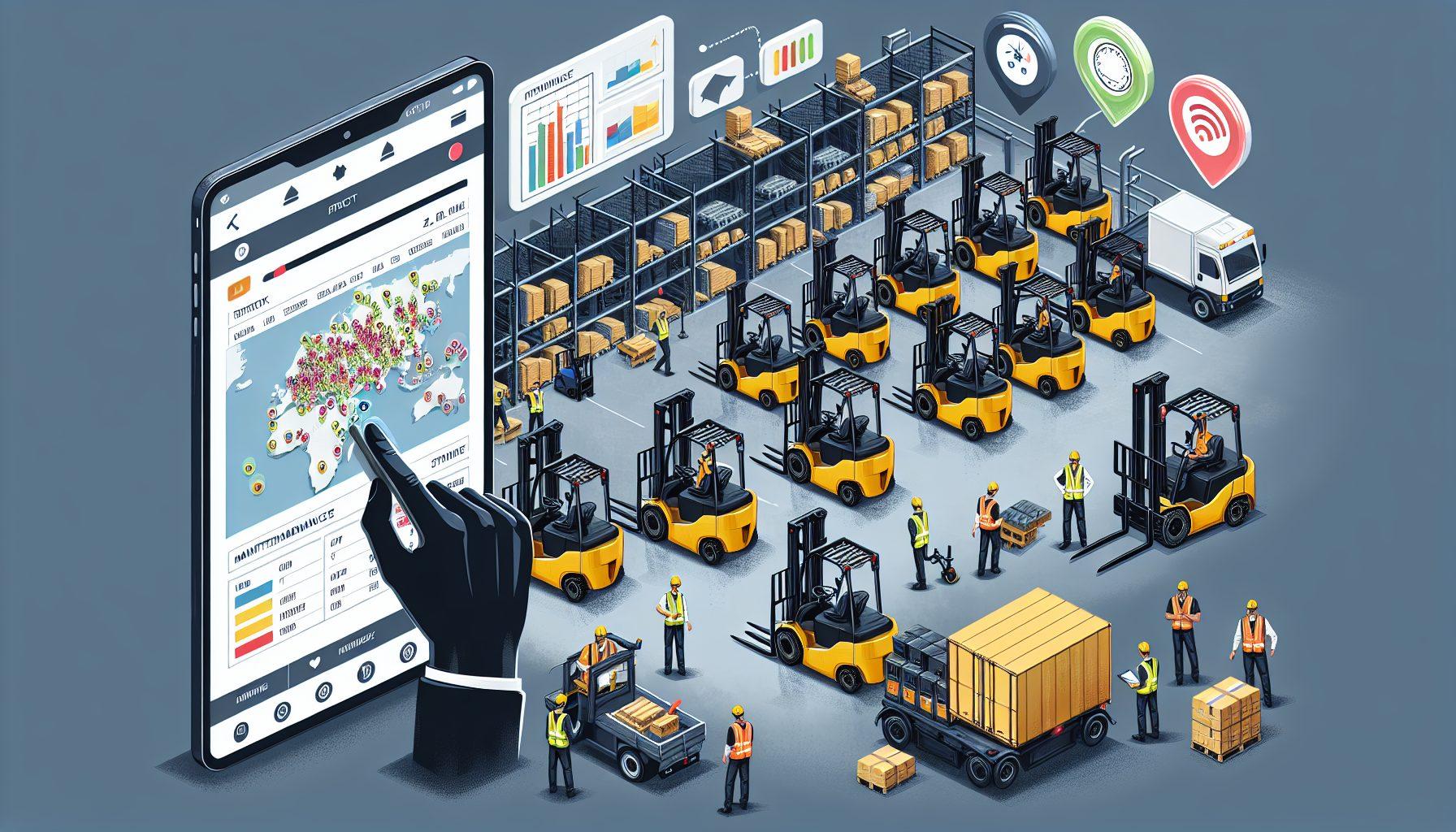Forklifts don’t run themselves—especially not when you’re hustling to fill orders, dodge downtime, and avoid surprise repairs during peak season. Maintenance isn’t optional; it’s your fleet’s lifeline. Here’s how to keep things smooth, safe, and (mostly) error-free—without becoming a full-time forklift therapist.
1. Stop Guessing—Use a Preventive Schedule
Waiting for something to break? That’s not a plan. That’s a problem.
Set up maintenance based on engine hours, not dates on a calendar. Change fluids, check brakes, tighten what’s loose. Regular upkeep is boring—but breakdowns during your busiest shift? That’s chaos.
2. Trust Data, Not Vibes
You might feel like Truck 12 is always in the shop, but unless you’re tracking hours, repair frequency, and battery usage, it’s all anecdotal. Start logging real numbers. Doesn’t have to be fancy—just has to be consistent.
3. Train Operators to Inspect Like Pros
Not just how to drive. How to notice.
Each shift, your team should:
- Walk the truck
- Check forks, fluids, tires, and lights
- Flag damage—even the small stuff
Make it part of their rhythm, not just a checklist someone signs and forgets.
4. Don’t Stock a Mini Dealership
Yes, parts go bad. But stocking every part “just in case” clogs space and budgets.
Keep the essentials on hand—filters, bulbs, belts. Order the rest smartly.
5. Add Smart Tech (Even a Little Helps)
Even basic telematics can show you what’s being overworked, what’s underused, and what’s headed for trouble.
The goal isn’t surveillance—it’s insight. Know more, stress less.
6. Look for Patterns
If tires are wearing out faster or motors are overheating more often, dig deeper. Operator habits? Overloads? Missed checks?
Trends are like breadcrumbs—they lead to real fixes, if you bother to follow them.
7. Deep Dives—Do Them
Quick checks are good, but deep checks are better. At least twice a year, go all in:
- Brake system
- Drive train
- Hydraulics
- Safety sensors
Yes, it’s extra effort. But it’s also what keeps your trucks from becoming scrap metal.
8. Document or It Didn’t Happen
Keep tight records. Seriously. Maintenance logs don’t just help you stay on track—they protect you.
Insurance claims? Audits? Resale? No log = no proof.
9. Budget Like It’s Inevitable
Because it is. Parts will wear out. Motors will grind. The question is whether it’ll cost you $200 next Tuesday—or $4,000 because it shut down your loading zone.
Build it into your budget now and avoid the scramble later.
10. Call in Help When You Need It
Not every team has the time or tech to handle full-scale fleet upkeep. Partnering with a forklift fleet maintenance provider gives you coverage, skill, and peace of mind.
Check out our fleet maintenance services
A Quick Rule to Live By
If a problem can be fixed in under two minutes—do it now. Don’t write it down. Don’t “circle back.” Just fix it.
That little rattle? It’s not going away. It’s building character—and repair bills.
Bottom Line
Preventive beats reactive. Always.
Track what matters, train your team, keep the right parts close, and don’t let small issues grow up to be big ones. A little effort each week saves you time, money, and a lot of swearing down the line.

